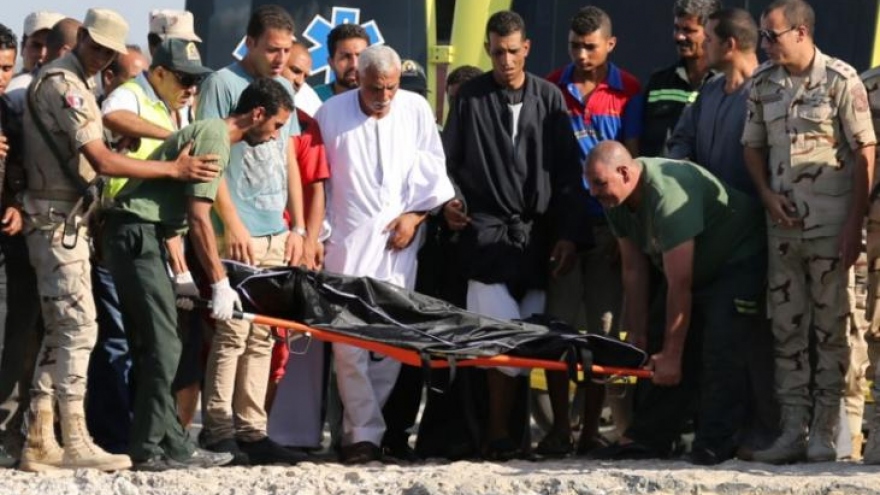Balkan route nations say to focus on achievable ways to prevent migrant influx
European countries on the route used by more than a million migrants to reach the continent last year agreed on September 24 to focus on the more easily achievable ways to prevent another influx than the big issues the EU is divided over, Austria said.
 |
| Austrian Chancellor Christian Kern and German Chancellor Angela Merkel (R) attend the summit 'Migration along the Balkan route' in Vienna, Austria, September 24, 2016. REUTERS/Leonhard Foeger |
"We are focusing on where we can achieve something and implementing that more forcefully," Austrian Chancellor Christian Kern told a news conference after the meeting.
Austria and its Balkan neighbors infuriated Athens by jointly introducing border restrictions in February that largely shut down that route, leaving thousands stranded on Greek territory and undermining German calls for united EU action.
Tensions with Germany and Greece have since eased, partly because a deal between the European Union and Turkey has slowed the flow of migrants into Greece. Both German Chancellor Angela Merkel and her Greek counterpart attended the talks.
Working toward fully implementing that deal, including the deadlocked issue of visa-free travel for Turks, was one of the three main goals agreed on at Saturday's talks, Kern said.
Others included providing extra staff for EU border force Frontex, starting with ensuring member states meet commitments already made, which has not yet happened, he added.
Kern said the countries hoped that progress on some of these issues would help unblock disagreements at the heart of the immigration problem.
Participants said they also wanted to work faster toward deals modeled on the agreement with Turkey, with countries including Niger and Egypt, as well as deals with Pakistan and Afghanistan that would clear the way for deporting more migrants from Greece, where thousands live in crowded camps like one that caught fire this week.
There has been tension between Merkel, who let in a million people last year, and ex-communist eastern states that have refused to take in asylum-seekers.
"The redistribution issue was discussed, but I am convinced that we will make progress on that when the first two things are solved, namely building up border protection (and) building appropriate support structures in countries of origin," Kern said.
Hungarian Prime Minister Viktor Orban, however, said preparations should also be made for a less happy outcome.
"We must have a second plan for the eventuality that the EU-Turkey deal, for whatever reason, collapses," he told a news conference. "When the migrants descend on us and trouble arrives it will be too late to reach for blueprints, for fences, for physical barriers, for new police and soldiers."




